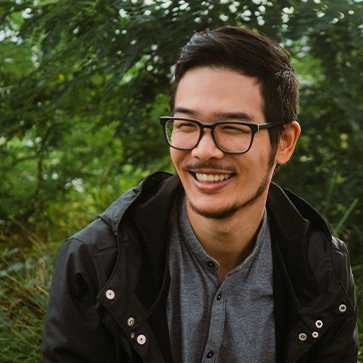No matter how smart we think we are, there is still so much we don’t know, especially when it comes to our emotions.
You’ve heard the saying, “You can’t teach an old dog new tricks,” right? It’s been embedded in me and our culture for centuries.
But if we take this old idiom to heart, we end up limiting our growth, education, and intelligence. When it becomes too difficult to learn new skills, languages, concepts, or philosophies, we tell ourselves, “It’s cause we’re too old.”
Well, I hope you know that that’s completely false, and that should be encouraging! Today, it’s generally accepted that the adult brain doesn’t stop growing after a certain age, which means we don’t ever have to feel stuck anymore. The process is slowed, relative to a young brain in development, but in the right environment and with the right tools, adults can still keep learning.
Books are my favorite way in doing so. It’s the author’s best knowledge on the topic crafted together in one place.
Here are some that have expanded my way of thinking and how I approach life, in no particular order.
*I’ve provided links to each book for your convenience! Some or all may be an affiliate link that will cut me a commission if you decide to buy, at no extra cost to you, which would help me continue providing this content for you. If you are uncomfortable using the following links for any reason, you can just search the book at your preferred bookstore.
“There is perhaps no psychological skill more fundamental than resisting impulse.”
Lesson learned: As I reflect back on my life, I realized I was terrible with my emotions because I was taught by most everyone around me that emotions should be suppressed. Having a strong focus on academics, logic, and reasoning, I thought emotions were a weakness and emotional people were not as intelligent. And yet, I still let my emotions get to the better of me in all aspects of my life.
That was the biggest takeaway for me in this book, that most of the time, there are no good reasons for impulsively reacting to our negative emotions. It’s ironic actually because you would think that smart, logical people would be able to come to senses with their emotions, but that’s rarely the case. That’s because our society has not placed enough importance on the other half of our mind and we are now seeing the consequences in all of our social issues today.
This book was what inspired me to act as the messenger in spreading awareness of emotional intelligence (aka EQ) because of how it impacts us as emotional, social beings.
“The Subtle Art of Not Giving a F*ck: A Counterintuitive Approach to Living a Good Life” by Mark Manson
“If you’re dreaming of something all the time, you’re reinforcing the same unconscious reality over and over: that you’re not that.”
Lesson Learned: I was very much attracted to this book because of the title. And he did a good job sticking to the theme of being bold too. He flipped everything on its head and it was refreshing!
We need to stop caring so much about the trivial things that don’t matter to us in the grand scheme of things. The more we want to be somebody or to get something, the more we distance ourselves from who we are in the present.
My favorite aspect of the whole book is that it brings in a hint of Eastern philosophy into the Western ideals in order to balance things out a little bit. Being American myself, I’ve seen firsthand how stubborn we can get about what we think is right, or how we should live. But there is always something to learn that could invalidate everything you thought you knew, for the better (like that quote up there, #mindblown, right?).
Maybe we shouldn’t focus too much on pursuing happiness and just be happy instead.
I am grateful for being raised with both Western and Eastern values, which is partly why I resonated so much with this book. But even if you don’t have exposure to much of the Eastern philosophy, this might be a good starting point for you to equalize that.
“We are surrounded by modern, time-saving devices, but we never seem to have enough time.”
Lesson learned: Funny enough, this book was also recommended by a random article like this a few years back and it has given me so much education I’ve never received anywhere else. And it speaks to a topic never more relevant than today.
We’re in the middle of another major industrial revolution as technology advances far more quickly than the human mind could keep up with. With so many options, opportunities, and information wanting your attention, how do we stay sane and happy with what we choose to do?
A hint is to learn the difference between a maximizer and a satisficer. One is not better than the other in the absolute, but knowing understanding how you make decisions and how you respond to those decisions are critical to your long-term well-being.
“Essentials to happiness in this life are something to do, something to love, and something to hope for.”
Lesson learned: There is no one universal philosophy that will solve all of our problems. So many of us unnecessarily suffer because of how much pressure we put into finding happiness or that magic bullet. But that’s what makes life beautiful and three-dimensional. There’s no one answer to everything, if any. Everyone has their perspective on how they want to live.
I say all that as a caveat that even though ikigai was developed after studying the people of Okinawa, one of the “blue zones” of the world, it’s still not a catch-all. But I still love the concept and have been telling everyone about it.
The idea is our life purpose is revealed at the intersection of our passion, our mission, our vocation, and our profession. Some may argue that they don’t want to be mixing up their passion with their profession, but if there’s no passion in what you do, then it’s just another job. They might also be confusing hobbies with passion, or think of their profession as something more serious than it should.
In any case, I’m glad I learned about this philosophy for allowing me to find my North Star, a sense of direction of where I want to take my life.
“Everything can be taken from a man but one thing: the last of the human freedoms — to choose one’s attitude in any given set of circumstances, to choose one’s own way.”
Lesson learned: What is universal, at varying degrees, is our curiosity. We all want to have purpose and value, and we question everything and its meaning.
Viktor Frankl’s story as a Holocaust survivor is inspirational. He lived through conditions where hope was nowhere to be found, but made it through by choosing optimism. His will and determination to write about his experience was what miraculously kept him alive after many near-death moments.
Not only is this a good book to develop empathy, but his mindset on life is something everyone could learn from.
“It isn’t what you have or who you are or where you are or what you are doing that makes you happy or unhappy. It is what you think about it.”
Lesson learned: I personally think a lot of us ironically torture ourselves when searching for happiness. I know I did. And I’ve come to learn that happiness is not something we can find in pursuit. It is an emotion. And emotions we can control, based on how we think.
Our internal language is so important and acts as a predictor for how our live could turn out. The two most important words are, “I am,” and that could work both in our favor, or against us.
I went in to this book wanting to learn the strategies and tactics to be all cool and popular and famous. But I came out aspiring to be my best self instead.
I learned to let go of my ego, to put the focus on the other person, understand who they are and just listen, rather than trying to impress.
Education is not something only meant for schoolkids. It is a lifelong process and tapping into the knowledge, expertise, and wisdom of those before us will guide us towards a bigger life.
Live with an open mind, that intelligence isn’t just intellectual, but emotional as well.
Live with the idea that you can learn from anyone or anything, anywhere, at anytime. Most likely, what got you here, isn’t what will get you where you want to be. Which means you will be constantly learning, even once you think you’ve arrived at your destination.
Want to Break Free From Your Limiting Beliefs?
I collected 11 exercises that will tap into your own existing wisdom to break free from the doubt and anxiety that is holding your life back.
Get your free list below!
Of course, I ain’t about that spam, unless there’s that cage-free, omega-3 eggs with the fancy sushi rice 😉
Related
Originally published at victorung.com


